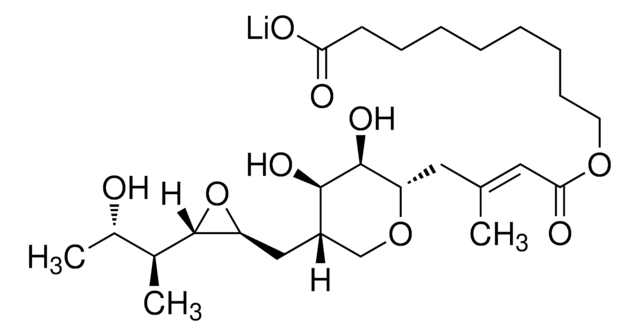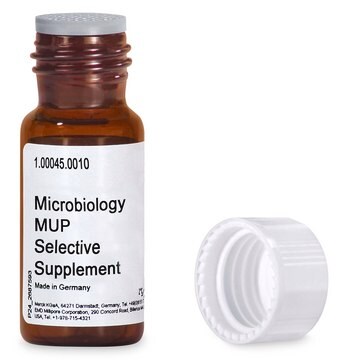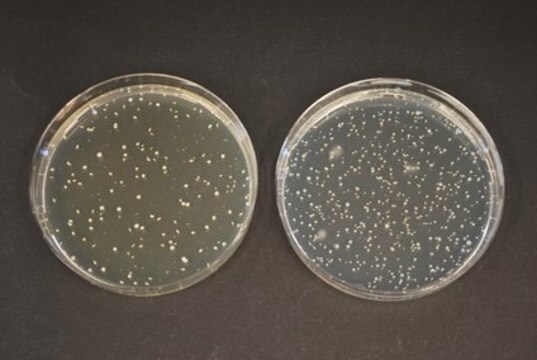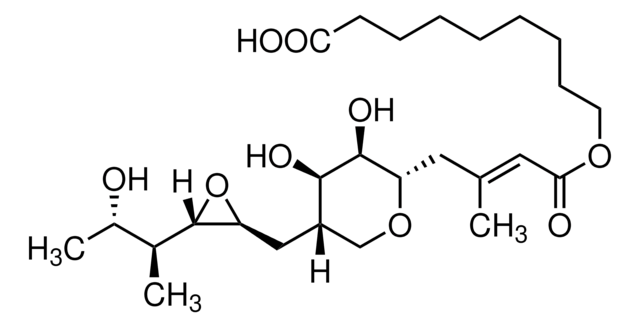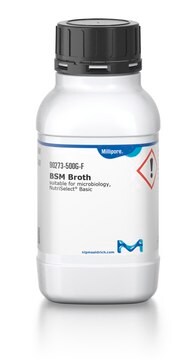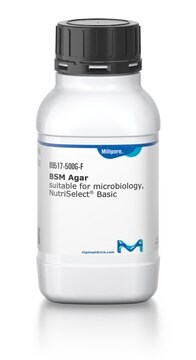07188
Lithium mupirocin
≥95.0% (HPLC)
Synonym(s):
9-((E)-4-{(2S,3R,4R,5S)-3,4-Dihydroxy-5-[(2S,3S)-3-((1S,2S)-2-hydroxy-1-methyl-propyl)oxiranylmethyl]tetrahydro-pyran-2-yl}-3-methyl-but-2-enoyloxy)nonanoic acid lithium salt, Pseudomonic acid A lithium salt
About This Item
Recommended Products
Assay
≥95.0% (HPLC)
form
powder
color
white to off-white
antibiotic activity spectrum
Gram-positive bacteria
Mode of action
protein synthesis | interferes
SMILES string
[Li+].C[C@H](O)[C@H](C)[C@@H]1O[C@H]1C[C@H]2CO[C@@H](C\C(C)=C\C(=O)OCCCCCCCCC([O-])=O)[C@H](O)[C@@H]2O
InChI
1S/C26H44O9.Li/c1-16(13-23(30)33-11-9-7-5-4-6-8-10-22(28)29)12-20-25(32)24(31)19(15-34-20)14-21-26(35-21)17(2)18(3)27;/h13,17-21,24-27,31-32H,4-12,14-15H2,1-3H3,(H,28,29);/q;+1/p-1/b16-13+;/t17-,18-,19-,20-,21-,24+,25-,26-;/m0./s1
InChI key
XFIKMPRBSORKQP-JATHGWPISA-M
Looking for similar products? Visit Product Comparison Guide
Application
Packaging
Other Notes
Storage Class Code
11 - Combustible Solids
WGK
WGK 3
Flash Point(F)
Not applicable
Flash Point(C)
Not applicable
Personal Protective Equipment
Certificates of Analysis (COA)
Search for Certificates of Analysis (COA) by entering the products Lot/Batch Number. Lot and Batch Numbers can be found on a product’s label following the words ‘Lot’ or ‘Batch’.
Already Own This Product?
Find documentation for the products that you have recently purchased in the Document Library.
Customers Also Viewed
Articles
Probiotics are defined as live bacteria with beneficial effects to the health of the host organism. Pimarily lactic acid bacteria (LAB) and bifidobacteria are used as probiotics, however certain yeasts and bacilli are also known to have positive effects
Our team of scientists has experience in all areas of research including Life Science, Material Science, Chemical Synthesis, Chromatography, Analytical and many others.
Contact Technical Service